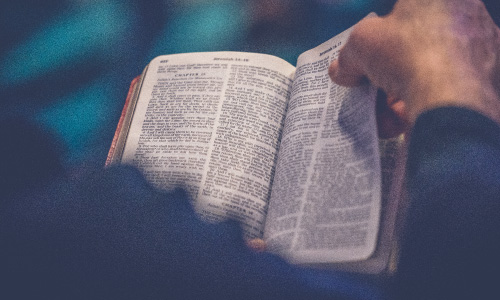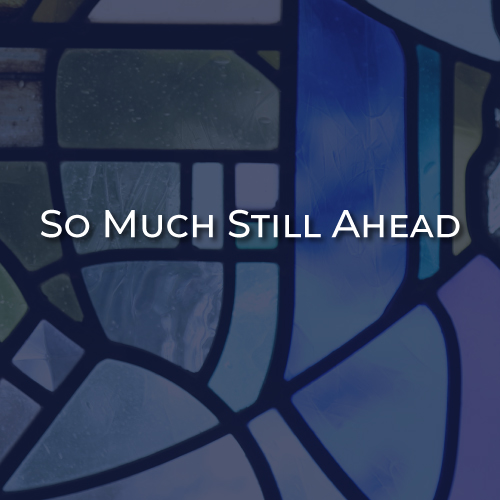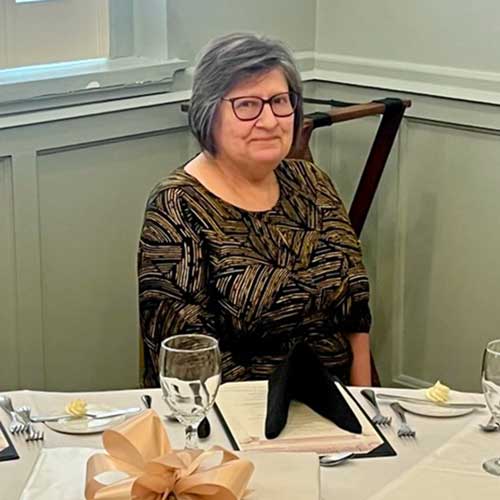Day 10
Posted on: February 27, 2024
by: Gerrit Dawson, Senior Pastor
by: Gerrit Dawson, Senior Pastor
DAY 10 TUESDAY
Not Even One!
Imagine standing with Jesus, right next to him, in prayer to his Father. Read this passage of praise aloud. As you do so, consider that you are praying along with Jesus, your two voices becoming one as you bless God.
Bless the LORD, O my soul,
and all that is within me,
bless his holy name!
Bless the LORD, O my soul,
and forget not all his benefits,
who forgives all your iniquity
who heals all your diseases,
who redeems your life from the pit,
who crowns you with steadfast love and mercy,
who satisfies you with good
so that your youth is renewed like the eagle’s. (Psalm 103:1-5)
Psalm 14
The fool says in his heart, “There is no God.”
They are corrupt, they do abominable deeds;
there is none who does good.
The LORD looks down from heaven on the children of man,
to see if there are any who understand,
who seek after God.
They have all turned aside; together they have become corrupt;
there is none who does good,
not even one.
Have they no knowledge, all the evildoers
who eat up my people as they eat bread
and do not call upon the LORD?
There they are in great terror,
for God is with the generation of the righteous.
You would shame the plans of the poor,
but the LORD is his refuge.
Oh, that salvation for Israel would come out of Zion!
When the LORD restores the fortunes of his people,
let Jacob rejoice, let Israel be glad.
What Is This Psalm About?
This is primarily a wisdom psalm. Rather than a direct prayer, Psalm 14 mainly describes the truth of the human situation before God. It starkly reveals the foolishness of not accounting for the reality of God. Its grim assessment of our innate sinfulness leads to the one line of prayer in the song, a heartfelt plea for the LORD to save us.
What Might This Psalm Have Meant to Jesus?
It’s difficult to understand how someone could be truly human and yet not be predisposed to sin. How could one be tempted, yet not feel an immediate propensity to yield? How could one feel completely oriented toward the Father even as everyone around seemed focused on self? Jesus lives this freedom. He lives this loneliness. He lives this joy. He lives being odd.
I wonder if it startled him as a child to see other children be cruel just to be cruel. I suspect it hurt him to see a pack of kids mock a child for being slow, having a malformed hand, or speaking to the animals. He would have felt the sting of comments that his beloved father Joseph was not really his father. He would have been sadly baffled that others found his love of worship and reading Scripture to be weird, when, as Jews, they all said that loving the LORD with all their heart was their primary duty.
As he grew into adulthood, Jesus would have seen that people do not grow out of cruelty, indifference or the tendency to do what is wrong and self-centered. They just learn to hide it and to live with hypocrisy. The man cheating customers in the marketplace still sings the psalms at synagogue. The woman gossiping poisonously about her neighbor still acts like they are the best of friends when they are together. The pious Pharisees, striving hard to preserve the faith amidst Roman rule, so often make serving the LORD seem like joyless, compulsive bondage. Good believers, under the crush of life’s pressures, might question the very existence of their heavenly Father.
Throughout his ministry, Jesus has to reckon with the fact that everyone is prone to break the commandments. Each and all betray God and one another. Psalm 14 helps Jesus make sense of this reality. He is not just being judgmental or overly pious in noting the sad truth. In fact, his heart breaks knowing where these self-focused decisions and actions always lead. Ruptured relationships, revenge, further distortions, despair and even hatred toward God inevitably follow.
The psalm helps Jesus accept how different from others he feels: “There is none who does good, not even one.” He realizes, though, that some know the truth about themselves. They own the ruin in their lives and long to be freed from it. He feels so drawn to show them his Father’s love. Others, though, insist that they are good in themselves. They’re sure Psalm 14 is about someone else. They’re insulted at even the suggestion that they are among the foolish and the corrupt. Jesus knows that to save them he must starkly tell them the truth.
So he says, “For from within, out of the heart of man, come evil thoughts, sexual immorality, theft, murder, adultery, coveting, wickedness, deceit, sensuality, envy, slander, pride, foolishness. All these evil things come from within, and they defile a person” (Mark 7:21-23).
He presents a parable of a man who thought he had accumulated enough wealth to have no need of God or others and ends the teaching with this frightening admonition: “But God said to him, ‘Fool! This night your soul is required of you, and the things you have prepared, whose will they be?’ So is the one who lays up treasure for himself and is not rich toward God ” (Luke 12:20-21).
And he shockingly warns even the spiritual among us that “[n]ot everyone who says to me, ‘Lord, Lord,’ will enter the kingdom of heaven, but the one who does the will of my Father who is in heaven. On that day many will say to me, ‘Lord, Lord, did we not prophesy in your name, and cast out demons in your name, and do many mighty works in your name?’ And then will I declare to them, ‘I never knew you; depart from me, you workers of lawlessness’” (Matthew 7:21-23).
In praying Psalm 14, Jesus receives the wisdom to understand the sinful human nature he has come to confront, and he finds words to lament the lost state of the world: “Oh, that salvation for Israel would come out of Zion.” Zion symbolizes the place where God dwells with his people. Jesus, who is Emmanuel, God with us, knows that in his ministry, his Father has sent forth salvation from Zion. Jesus goes forth to forgive those who own their sin.
Praying with Jesus
I remember the sickening surprises
Of first learning how people do wrong.
The stealing of my coins startled me;
Being lied to by a relative shocked me.
A fist in my face for no provocation
Taught me that evil
Does not have to make sense.
Yet it is there, unpredictable and ever-destructive.
Sinful hearts surrounded your pure one, Jesus.
I feel lonely for you.
What we do to each other,
Too often to those who love us most,
Surely pierced you.
How did you stand the grating noise
Of our cruel, coarse words?
How did you endure the isolation
Of being the only one who desired
In earnest sincerity, the goodness of God?
How justly you could have condemned,
And left us to judgment we deserve.
But instead, you went forth out of Zion,
Out of the love of Father, Son and Spirit
To seek and to save the lost.
I’m so glad you spoke the truth of us.
I’m only offended if I’m too proud
Or frightened to own up to what I already know.
I need a savior, one who accounts for the very worst of me
And resolves the conflict, atones for the harm and makes me new.
Posted in:
Lent




 Close
Close











